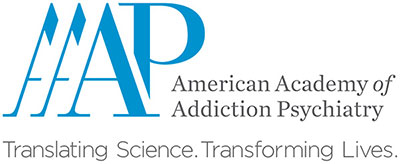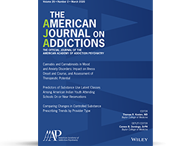EAST PROVIDENCE, RI—Jan. 3, 2018— The medical subspecialties of Addiction Psychiatry and Addiction Medicine are joining forces to address a significant shortage in addressing the national opioid crisis.
In the field of public health and medicine, minority representation among clinicians has been underrepresented and in the field of addiction medicine specialty training even more so. While African Americans, Hispanic Americans, and Native Americans represent nearly 30 percent of the U.S. population, they collectively comprise less than 10 percent of all physicians and a much smaller percentage in addiction fields.
The Substance Abuse and Mental Health Services Administration (SAMHSA) recently announced they have awarded a grant for $1 million each year for five years to the American Academy of Addiction Psychiatry (AAAP) in collaboration with the American Foundation of Addiction Medicine (AFAM). This grant will help train and expand minorities in Addiction Psychiatry and Addiction Medicine and serving under-served populations as well.
The Recognizing and Eliminating disparities in Addiction through Culturally-informed Healthcare (REACH) training program will build on the existing infrastructure and partnerships between AAAP and Addiction Psychiatry fellowship programs. This initiative will build collaboration between the Addiction Medicine Foundation (TAMF) and the Addiction Medicine and Addiction Psychiatry fellowship programs, Yale School of Medicine, which will be the primary site for this training initiative.
The U.S. is in the grip of an unprecedented opioid epidemic, exacerbating the shortage of physicians trained in addiction medicine. Physicians specialized in addiction treatment undergo rigorous subspecialty training, which helps fill in the gap between behavioral health and medical care. Minority clients are disproportionately affected by suboptimal treatment and less likely to engage in mental health and substance abuse treatment.
“As medical director on this project, I am elated that SAMHSA has provided the necessary resources to address the shortage of physicians in the addiction workforce, while also providing a platform for these physicians to receive deliberate training in culturally-informed care,” said Ayana Jordan, MD, PhD. “REACH is an innovative program that will increase the number of addiction physicians from underrepresented backgrounds, while also teaching the existing workforce about structural competence and ways to improve outcomes for people with substance use disorders.”
Given the high co-morbidity of medical illnesses amongst patients with substance use and mental health disorders, the REACH program draws strength from its collaborative nature between Addiction Medicine and Addiction Psychiatry, with a teaching curriculum that highlights the value and effectiveness of these two disciplines working together. Finally, the REACH program includes an advisory committee made up of racially and culturally diverse policy makers, addiction medicine and addiction psychiatry physicians, community physicians, and activists, who will ensure curricula strong in diverse clinical and training perspectives.
“SAMHSA has set the bar high, and REACH will undoubtedly make strides in changing the face of addiction physicians and ways in which all people receive quality care,” Dr. Jordan said. The grant will provide funding for the recruitment and training among early career trainees, including medical students, residents, and fellows in Addiction Psychiatry and Addiction Medicine.
The gaps in care for minority populations have disproportionately affected them by lack of appropriate services. Several factors contribute to this trend:
- social and cultural stigma associated with accessing substance use treatment
- mistrust of the medical system due to historic maltreatment of minority clients
- lack of healthcare coverage
- circuitous and difficult pathways to care
- lower socioeconomic status
- absence of culturally informed treatment options
- minority populations seeking treatment from minority professionals
This innovative REACH training program takes advantage of the collaborative nature and didactic training modules presently held between Addiction Psychiatry and Addiction Medicine, which emphasize the unique medical and mental health needs often overlooked when addressing minority patients with substance use disorders.
For more information please email [email protected] and browse the website at https://reachgrant.org/
The American Academy of Addiction Psychiatry is a nonprofit professional membership organization of Addiction Specialists whose mission is to promote the need for research and clinical treatment using evidence-based approaches through training and education.
Funding for this initiative was made possible (in part) by grant no. 1H79TI081358-01 from SAMHSA. The views expressed in written conference materials or publications and by speakers and moderators do not necessarily reflect the official policies of the Department of Health and Human Services; nor does mention of trade names, commercial practices, or organizations imply endorsement by the U.S. government.



